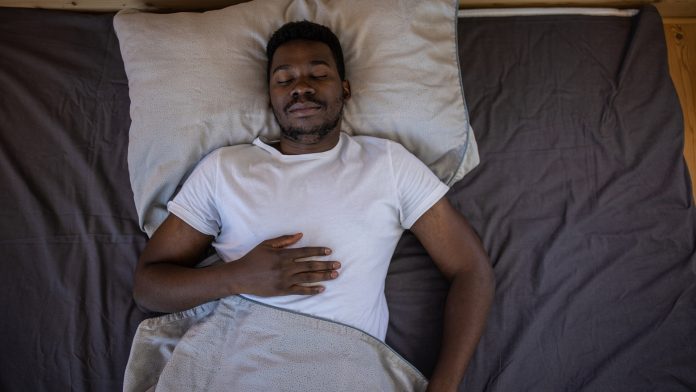
A new study on the associations between sleep bruxism, insomnia and their potential risk factors, such as depression and anxiety has been completed.
The findings from the study show that, although sleep bruxism has no direct links to insomnia, anxiety is a linking factor between these variables.
The paper, titled A network analysis of self-reported sleep bruxism in the Netherlands sleep registry: its associations with insomnia and several demographic, psychological, and life-style factors, has been published in the journal Sleep Medicine.
The research team was made up of academics from the Netherlands Institute for Neuroscience, University of Amsterdam and Vrije Universiteit Amsterdam (Netherlands) and Mahidol University (Thailand).
What is Sleep Bruxism?
Sleep Bruxism refers to muscular activity of the jaw characterised by the clenching or grinding of the teeth or pushing of the jaw, which occurs during sleep. Certain psychological and lifestyle factors may be associated with sleep bruxism.
Stress, anxiety, depression, and social factors such as workplace dissatisfaction are commonly reported alongside sleep bruxism. However, current evidence on the role of these factors is not definitive. As well as this, lifestyle factors such as smoking, alcohol consumption and drinking coffee have been considered by researchers as potential risk factors for the condition.
Sleep-related disorders such as obstructive sleep apnoea, restless legs syndrome and gastroesophageal reflux disease were also identified by researchers as comorbid conditions of sleep bruxism. Insomnia has also been suggested as a comorbidity of sleep bruxism by some researchers.
Previous investigations have studied associations between sleep bruxism, insomnia, anxiety, and depression univariately. The BIAL foundation researchers decided to examine links between self-reported sleep bruxism and other variables. They used univariate analysis, alongside multivariate logistic regression and network analysis to study these associations.
In the study, 2,251 participants (352 with self-reported sleep bruxism and 1,899 without self-reported sleep bruxism) took part in questionnaires. The questionaries required the patients to answer questions on insomnia, depression, anxiety, smoking frequency and alcohol and caffeine consumption.
The researcher’s univariate analysis revealed a positive association between sleep bruxism and insomnia. This association was not found in the multivariate logistic regression model. In this model factors such as age, psychological and lifestyle factors were considered by the research team. However, the multivariate model did reveal an indirect link between sleep bruxism and anxiety.
The role of lifestyle factors
Contrary to previous studies, which reported that alcohol and coffee consumption increased the risk of having the condition, the researchers found no association between these factors and self-reported sleep bruxism. Additionally, the study did not reveal any association between sleep bruxism and smoking.
“We concluded that, although self-reported sleep bruxism has no direct association with insomnia, anxiety may act as a bridging factor between these complaints, so when treating sleep bruxism and insomnia, anxiety management should not be overlooked, asking for an interprofessional collaboration of doctors and dentists”, said Tessa Blanken, a researcher supported by the BIAL Foundation.






















